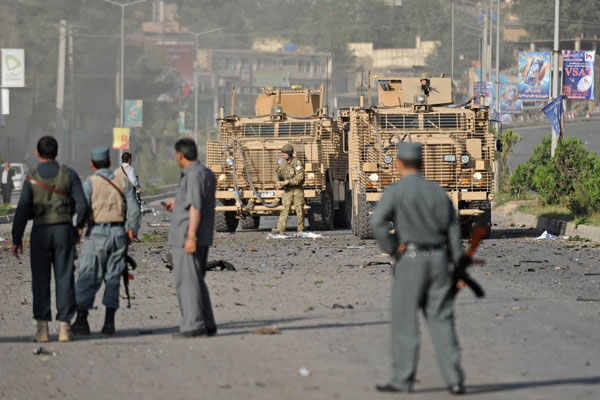It is very easy to dismiss Wednesday’s recall of Parliament as a pointless exercise in handwringing that sums up the way most MPs approach foreign policy. There will certainly be plenty of frustrating hindsight on offer from politicians who haven’t taken a blind bit of notice of Afghanistan right up until the point where they scent an opportunity to bash the government. But there are also important questions to be answered that cannot wait for the normal return of the Commons in September.
The first is whether there is any likelihood of British and NATO troops returning to the country. This morning on the Today programme, Defence Secretary Ben Wallace explained that the military could still deal with a growing terror threat from Afghanistan through cyber or ‘kinetic strike’, but made very clear that while ‘we have a range of capabilities to deal with it, it is not as good or optimal as being in the country’. He has not shied away from criticising the US’s decision to leave in the way it did or with the timing it chose, and today said ‘it is too late for Afghanistan’ when it came to trying to stabilise the country to prevent the return of groups such as al-Qaeda. MPs will need to probe just what he means by ‘too late’ in the context of preventing the country from becoming an exporter of terror again.
There are Conservative backbenchers such as Julian Lewis who have been arguing that the UK must reserve the right to launch fresh military action in the country: they will press the government again on whether this will be the case and what the trigger points are.
It will be unbearably tempting for the Labour party to make this about who was on holiday when
On a diplomatic level, the UK needs to work out how it would get approval for such action against terror groups from the UN Security Council. Dominic Raab, now back from his holiday, should be working out ways of avoiding a veto on this from China or Russia. How will he be doing that?
The most painful images and interviews from the past 24 hours have come from Afghans who are owed protection from the British government but who are finding little reassurance in the chaos. A key part of the parliamentary debate must be about who the government will help – how far its protections go for former interpreters who were dismissed from their roles, for instance – and how much help it will offer. Former Cabinet Secretary Sir Mark Sedwill has argued that there needs to be more for Afghans than a choice between life under the Taliban and life in a refugee camp. So what is the third option that Britain could offer and who would be eligible for its help?
The risk with all foreign policy debates, but particularly this high-profile recall, is that MPs end up being pompous and pointless at the same time. It will be unbearably tempting for the Labour party to make this about who was on holiday when and to feast upon the spectacle of ministers caught by surprise by the speed of the Taliban’s return. It will be equally easy for others to end up making general points about the trouble with intervention and the failings of the West over the past two decades on this front. There isn’t time for that kind of academic discussion on Wednesday: the House isn’t even sitting all day.
The recall is absolutely necessary, but it is also the case that MPs could very easily squander it.







Comments